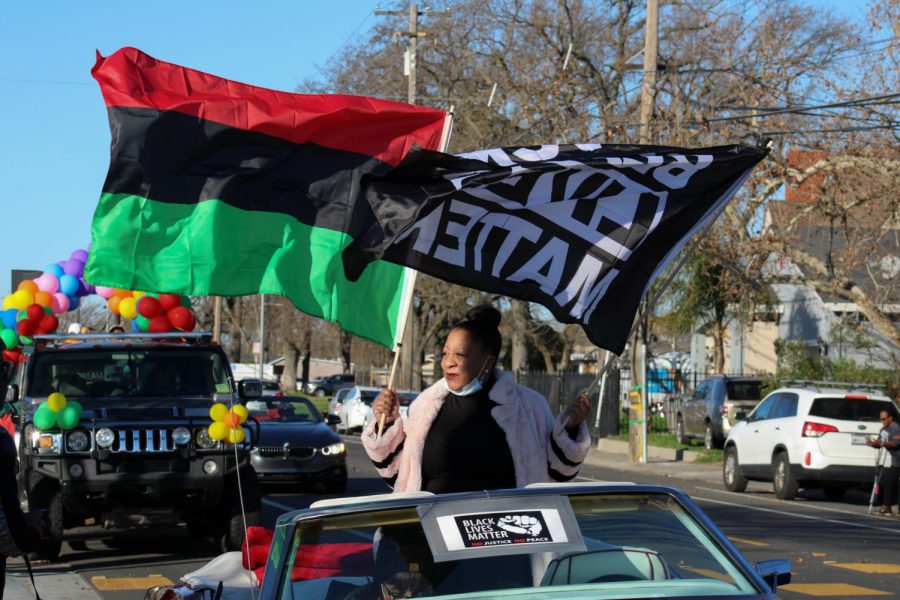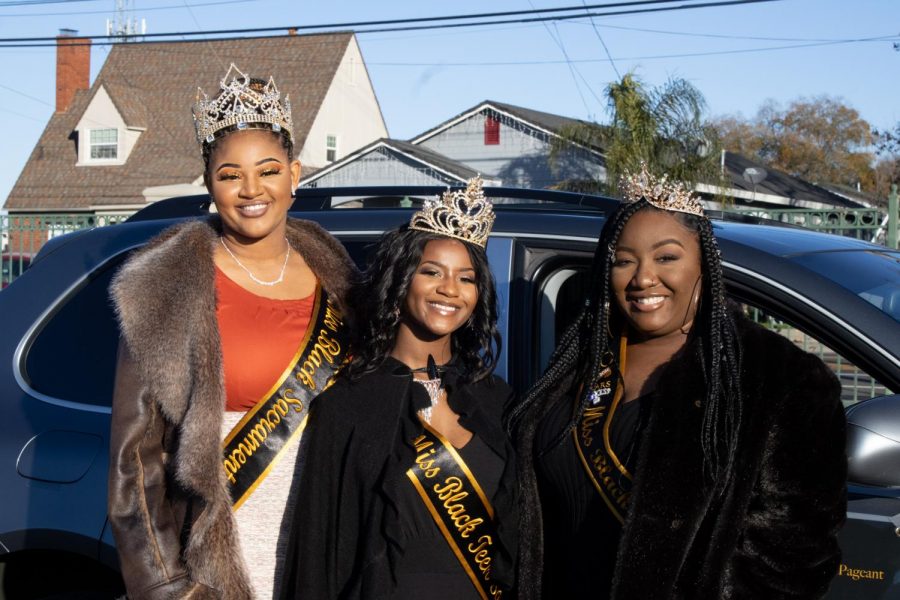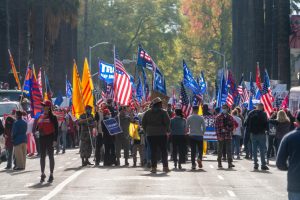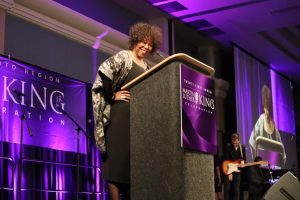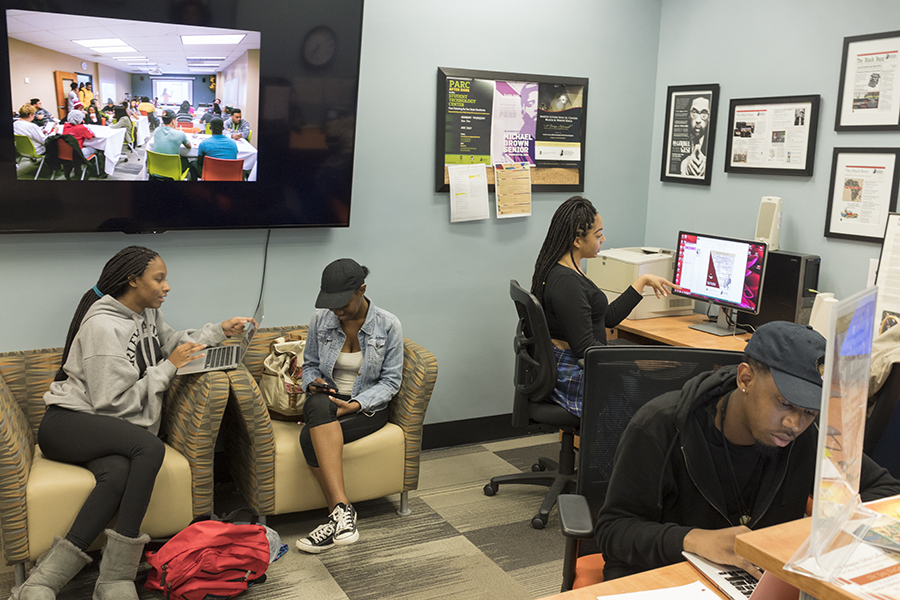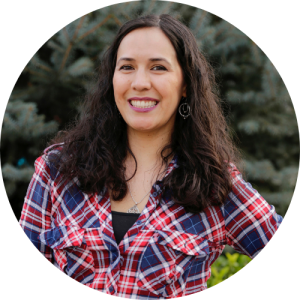BLM Sacramento and NAACP Sacramento host caravan to honor MLK
A car caravan was used to meet social distancing criteria
Tanya Faison, founder of BLM Sacramento, holding the BLM and Pan-Africa flag as she leads the Reclaim MLK car caravan hosted by BLM Sacramento and NAACP Sacramento on Monday, Jan. 18, 2021. The caravan started at Grant High School then proceeded to Sacramento City College, then to Oak Park Community Center and ended at Sacramento State.
January 18, 2021
With music playing and people dancing outside their cars, Grand Avenue was packed by 8 a.m. with people waiting for the Reclaim MLK car caravan to start. By 9 a.m. there were about 100 cars ready to leave Grant High School to head to the first stop, Sacramento City College, to gather more participants to join the caravan.
Black Lives Matter Sacramento and the Greater Sacramento branch of the NAACP held its annual Reclaim MLK March Monday to commemorate Martin Luther King Jr. Day through a socially-distanced car caravan.
The caravan is traditionally a march that began in 2014 as an alternative to the MLK 365 March, said Tanya Faison, founder of BLM Sacramento.
“Martin Luther King was anti-capitalist, he was anti-war [and] was arrested by law enforcement at least 30 times,” Faison said. “He wouldn’t be marching with CHP, SACPD, Sac Sheriff, Comcast, Verizon, which is who all marched in the [MLK 365] march.”
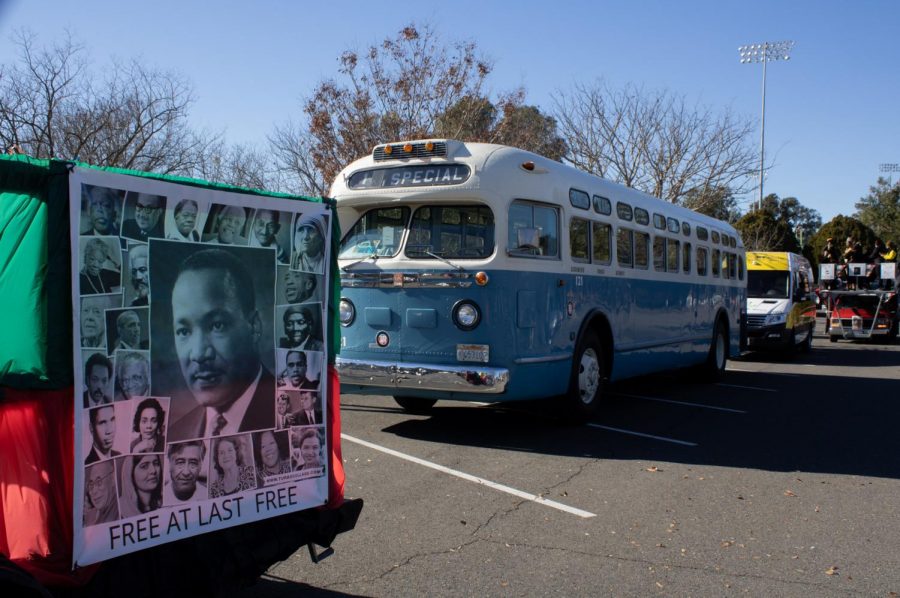
Sacramento Regional Transit’s nicknamed “Old Blue” bus commemorating Rosa Parks led the car caravan, which went from Grant High School to Sacramento City College, then Oak Park Community Center before ending at Sacramento State. The Sacramento Police Department blocked traffic to keep the participants safe during the caravan that went throughout the city.
As the caravan drove through neighborhoods, people came out of their homes and stood on corners with signs in solidarity with the caravan as it passed by.
Faison said the theme of this year’s march was that the dream Martin Luther King Jr. had was not realized.
“He did have a dream, and he passed away, and we’re still fighting for it,” Faison said.
Betty Williams, president of the Greater Sacramento NAACP and executive director of California Hawaii NAACP said this march was important during the current social climate.
“I think it’s important for our youth to see that regardless of what’s going on in the images that they have seen on television, that we can still come together in a non-threatening way and deliver the message of Dr. Martin Luther King,” Williams said. “He was shouting [for] the equality or the lack of equality for African Americans and others…He was fighting for equality, for education, homelessness, job training, all of those things are still reveling in.”
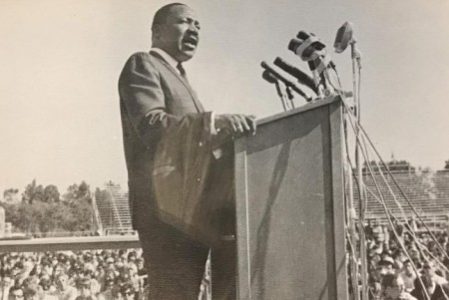
Faison said she reached out to Williams to partner on the event, feeling that it was important to do something in-person rather than settle for a virtual event.
Sac State student and member of the Alpha Phi Alpha fraternity Amofah Brobbey said this was his first time participating in this march since he started attending Sac State in spring 2020.
“Martin Luther King actually was a member of Alpha Phi Alpha fraternity incorporated,” Brobbey said. “Whenever we get the chance to do anything for Martin Luther King, we always do because that’s one of our big brothers.”
Sac State hosted Martin Luther King Jr. at a commencement on Oct. 17, 1967 where he spoke about unemployment, housing, education and inequality six months before he was assassinated.
During her closing remarks in the parking lot of Hornet Stadium, Williams said the presence of Dr. Martin Luther King Jr. at Sac State and his message of “the audacity of hope” is why it was important to end the caravan at the Sac State.
To Leia Schenk, founder of the underserved community advocacy organization Empact, MLK’s dream means the same thing that she wants for her children.
“Equality, equity, fair treatment, to be able to be with other races and have friends of other races, boyfriends, and girlfriends of other races, to be able to walk down the streets and not feel unsafe, to not feel like they’re going to lose their life,” Schenk said.






























































































































